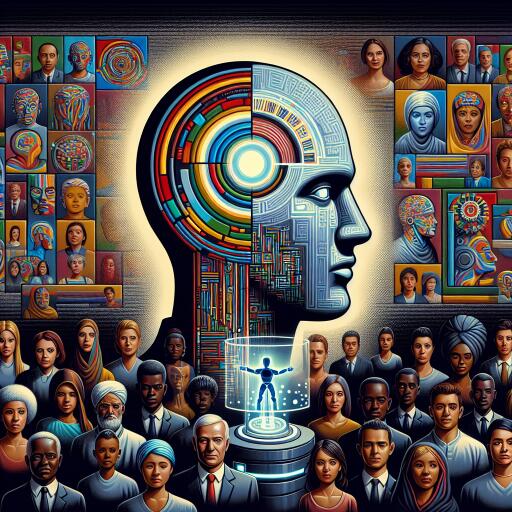Exploring the Boundaries of AI: Yann LeCun’s Perspective on the Limitations of Large Language Models
In the rapidly evolving landscape of artificial intelligence (AI), the quest for creating machines that can think, reason, and plan like humans remains a pinnacle of technological advancement. At the forefront of this ambitious journey, Yann LeCun, Meta’s Chief AI Scientist, casts a critical eye on the current capabilities and future potentials of large language models (LLMs). With a distinguished career that blends academic excellence and groundbreaking research, LeCun’s insights offer a sobering counterbalance to prevailing optimism surrounding LLMs.
In a thought-provoking discussion with the Financial Times, LeCun outlined his skepticism regarding the ability of LLMs to mirror the depth and breadth of human intelligence. These models, known for their prowess in generating human-like text and solving complex language-based tasks, have captivated the tech community with their sophistication. However, LeCun urges caution, labeling the over-reliance on such models as “intrinsically unsafe” for the quest toward artificial general intelligence (AGI).
The crux of LeCun’s argument revolves around several intrinsic limitations embedded within the architecture of LLMs. He highlights a range of deficiencies—from the models’ struggle with logical reasoning to their lack of persistent memory and understanding of the physical world. Furthermore, LLMs’ limited ability for hierarchical planning and reasoning, rooted in their design that heavily leans on pre-existing training data, restricts their capacity to deliver beyond the realms they’ve been trained on. This, according to LeCun, severely limits their utility in achieving the nuanced and diverse capabilities inherent to human intelligence.
Amidst these challenges, LeCun is not disheartened but rather invigorated to steer the AI community towards an alternative framework that could bridge the chasm between the current state of AI and the lofty goal of AGI. His advocacy for advancing towards AI systems that more closely emulate human cognition is not just an academic pursuit but a strategic vision for the future of technology. LeCun envisions a new dawn of AI, characterised by machines that possess a form of common sense and an intrinsic understanding of the world around them. He estimates that such a paradigm shift could take up to a decade, acknowledging the complexity of this endeavor and the need for sustained investment and research.
At the heart of this ambitious shift is LeCun’s commitment to “world modelling,” a pioneering research initiative spearheaded by the team at Meta’s Fundamental AI Research (FAIR) lab. This approach diverges from the current trajectory of AI development, focusing instead on creating AI systems capable of learning about the world in a manner akin to human cognition. World modelling aspires to equip machines with the ability to form an understanding of the physical and social environment, enabling them to engage in abstract reasoning, make predictions, and plan actions with a level of agility and adaptiveness that mimics human thought processes.
While Meta and its competitors continue to advance the capabilities of LLMs, LeCun’s vision for the future of AI charts a different course. His advocacy for a paradigm shift towards artificial general intelligence, grounded in the principles of world modelling and common sense reasoning, underscores a crucial juncture in the evolution of AI. As the tech community grapples with the limitations and potentials of current AI models, LeCun’s insights offer a roadmap for navigating the complexities of achieving human-level intelligence in machines—a goal that remains as daunting as it is exhilarating.
In light of these reflections, the AI community stands at a critical crossroads. The path forward, as LeCun suggests, demands a reevaluation of our dependence on large language models and a bold leap towards developing AI that truly emulates the intricacies of human thought. As we move towards this new frontier, the journey promises to be as challenging as it is transformative, offering a glimpse into a future where machines could potentially think, learn, and reason alongside their human creators.










